Trump Administration Cuts UCLA Funding Over Claims of Antisemitism, Chancellor Says

© Mark Abramson for The New York Times

© Mark Abramson for The New York Times
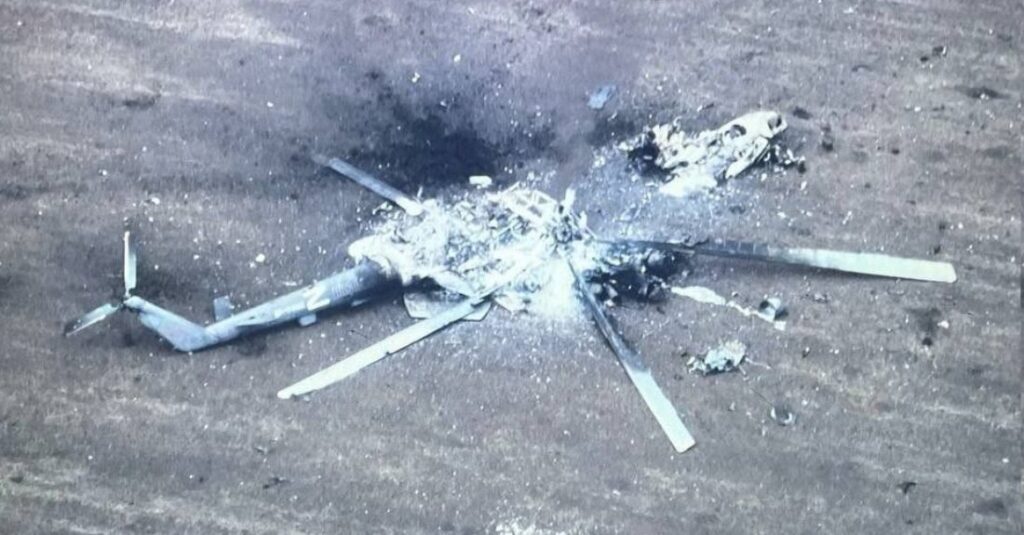
Hungary helps Russia by routing helicopter repairs through Kazakhstan while sourcing spare parts from Moscow, InformNapalm reports. InformNapalm is a volunteer intelligence community known for cyber operations exposing Russian military networks. Their latest release reveals a Hungarian company, Milspace Kft, offering a sanctions workaround for Russia’s Mil Design Bureau — the producer of Mi-series helicopters actively used against Ukrainian troops.
InformNapalm, working with the Militant Intelligence group, disclosed new data from the OpsHackRussia’sDay cyber operation. The dataset comes from hacked corporate correspondence of Russian defense industry companies. The latest document shows that Milspace Kft sent an official proposal to the Mexican company Personas y Paquetes Por Aire SA de CV. In this letter, Milspace Kft explains that Russian helicopter factories are under sanctions and offers a route to bypass these restrictions.
The leaked letter states:
“The Russian factory in Kazan, Mil Design Bureau and Holding of Russian Helicopters are under sanctions because of Ukrainen (original spelling, – Ed.) war. So, nobody can work with them directly. But we found a solution”
Milspace Kft proposes to act as the formal contractor while repairs would be done in a Kazakhstan plant licensed by Mil Design Bureau.
“Our Milspace is authorized organization of licensed by Mil Design Bureau repairing plant in Kazahstan. We are ready to participate in process of overhaul for your helicopters,” the leaked letter reads.
Spare parts would come from Moscow, specifically from Mi-INTER Ltd. The work would be supervised and coordinated with Mil Design Bureau and Russian Helicopters, both parts of Rostec, a large Russian state-owned conglomerate.
“Every of these organizations ready to participate in our repairing process, so the start was made successfully,” the document states.
InformNapalm reports that this letter details a service package worth $92,000. The plan includes a team of four “to carry out troubleshooting work on airframe and helicopters under a separate contract.”
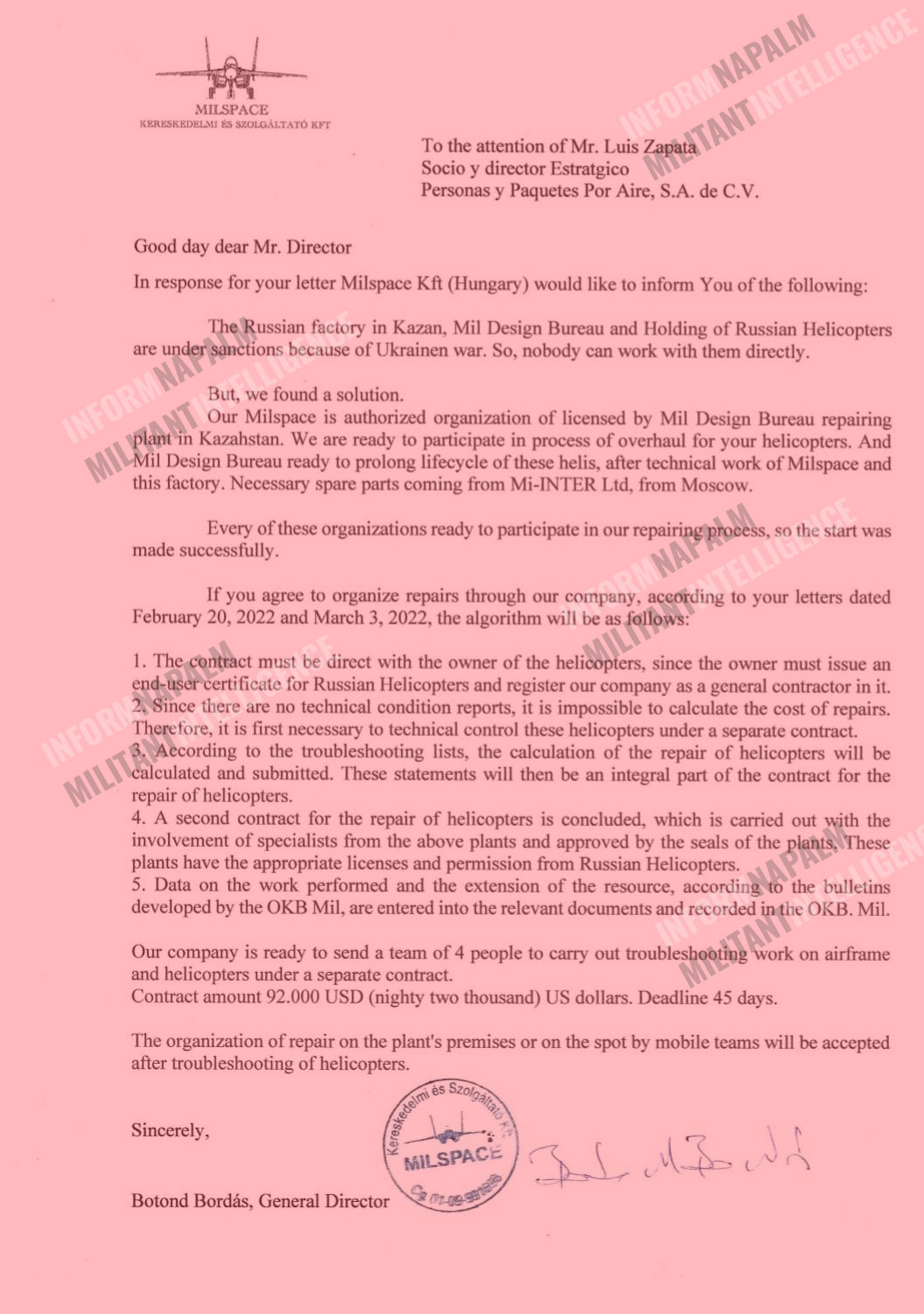
“Hungarian Prime Minister Viktor Orbán has consistently shown loyalty to the Kremlin, delaying EU sanctions and blocking military aid to Ukraine through NATO and EU structures. Therefore, Milspace Kft’s involvement in these operations aligns with Budapest’s geopolitical position, which often conflicts with the core interests of both the EU and NATO,” Inform Napalm says.
InformNapalm warns that Hungary’s involvement undermines NATO collective security. The practice ensures that sanctioned Russian helicopters remain operational, despite restrictions. This leak also highlights a broader pattern of using Kazakhstan as a hub for maintaining Russian equipment, similar to previous findings from the #SU30Leaks series.
Hacktivists call on journalists and European officials to investigate these sanction evasion networks before they grow further. They note that more documents from the OpsHackRussiasDay operation will follow.
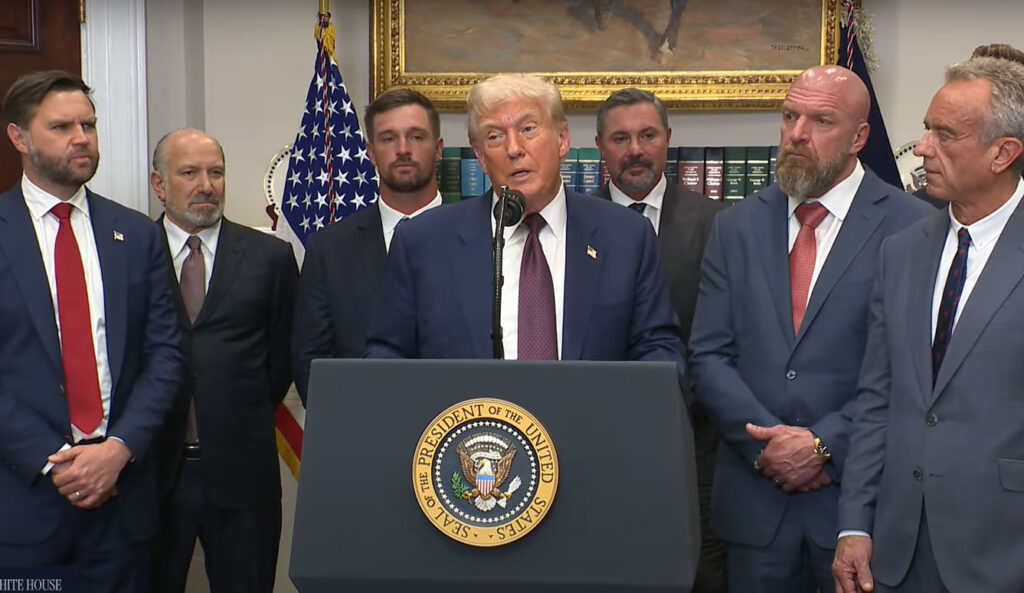
US President Donald Trump promises new sanctions on Russia as the US Senate prepares a massive package, and envoy Steve Witkoff is set to visit Moscow for another round of talks. The US President said at a White House briefing that he will impose sanctions, even though he doubts they will make Russia’s leader Vladimir Putin change course.
Despite Trump’s efforts to “end” the ongoing Russian invasion of Ukraine, Moscow has been repeatedly ignoring any calls for peace, only escalating its attacks against Ukrainian civilians. Yesterday’s Russian air attack on Kyiv killed at least 31 civilians, including three children. In the aftermath, Ukraine’s foreign minister Andrii Sybiha said Trump had been “very generous and very patient” with Putin, and called for immediate maximum pressure on Moscow to end the war.
Speaking after Russia’s deadly air assault on Kyiv, Trump said late on 31 July that Russia’s actions in Ukraine are “disgusting” and “a disgrace.” He again claimed that Russia’s invasion of Ukraine “is Biden’s war” and claimed the war would allegedly not have started if he had been in office when it began. He again said many people are dying on both sides and that the United States should not be involved in the fighting.
Trump confirmed that sanctions are part of his plan to pressure Moscow, even as he questioned their effect.
“Yeah, we’re going to put sanctions. I don’t know that sanctions bother him (Putin, — Ed.). They know about sanctions. I know better than anybody about sanctions and tariffs and everything else. I don’t know if that has any effect, but we’re going to do it,” he said.
Trump added that the Russo-Ukrainian war “should be stopped. It’s a disgrace.”
“This was a stupid war to get into. Should have never gotten into this war,” he said.
The President also announced that his envoy Steve Witkoff will travel again to Moscow after a stop in Israel.
“Going to Israel. And then he’s going to Russia. Believe it or not,” Trump said.
Witkoff has already been to Moscow several times, but those trips have not brought a ceasefire closer, as Russia continues to demand Ukraine’s de facto capitulation.
New York Post reports that Senate Majority Leader John Thune said Congress is ready to advance a sweeping sanctions bill against Russia if Trump decides he wants more pressure. The legislation was introduced by Lindsey Graham and has more than 80 senators signed on. Thune said in an interview that he is “hopeful” the bill will help Trump increase pressure on Putin.
Thune explained that the House and Senate are “ready to move” if the President wants harsher penalties for Russia. He said the support of the whole Congress would give the president more leverage in negotiations with Russia.
Trump, speaking earlier in the week to New York Post, expressed disappointment in Putin.
“I’m disappointed in him, I must be honest with you,” he said.
He described their earlier talks as unproductive, saying that each time “very bad things have happened” afterward.
Trump has also said earlier that if sanctions fail to produce results, he will consider tariffs on countries that continue buying Russian oil. According to Graham, these tariffs could target China, India and Brazil, which buy a majority of Russia’s oil.
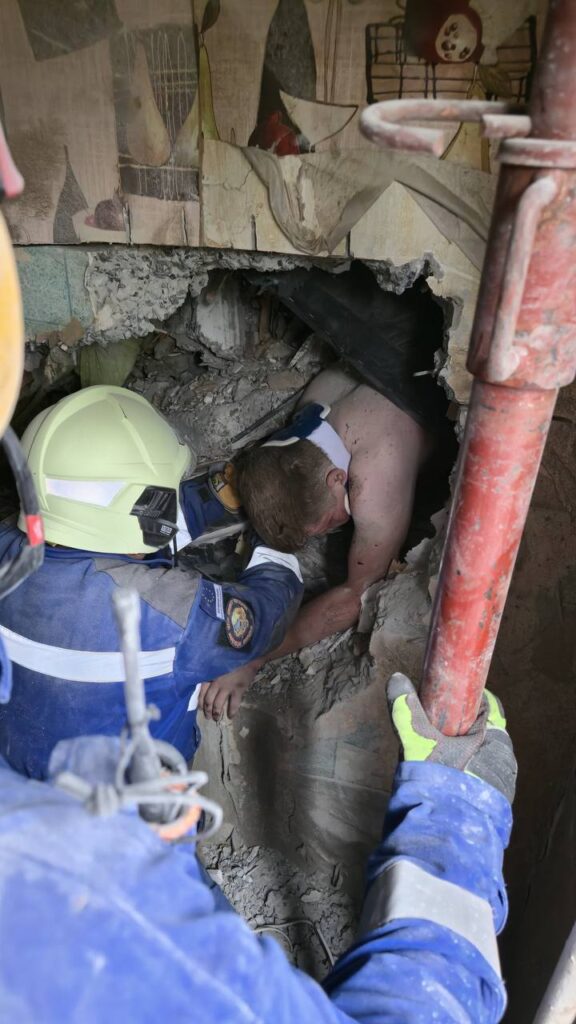
Ukraine’s State Emergency Service, for over three hours, rescued a man trapped in the rubble of a house hit by a Russian missile on 31 July. The rescuers maintained voice contact with him all that time. He had fallen from the second floor to the first and was pinned by structural debris.
Reaching the injured man was difficult: rescuers broke a hole in the wall of a neighboring apartment and formed a sort of tunnel.
Special stabilizers were attached to the man to avoid causing further harm during the rescue.
Search and rescue operations are continuing at two Kyiv locations, and emergency recovery efforts are underway at six. At the strike sites, all available equipment and specialists have been deployed to save lives. Nearly 2,000 tons of rubble were removed from the strike site.
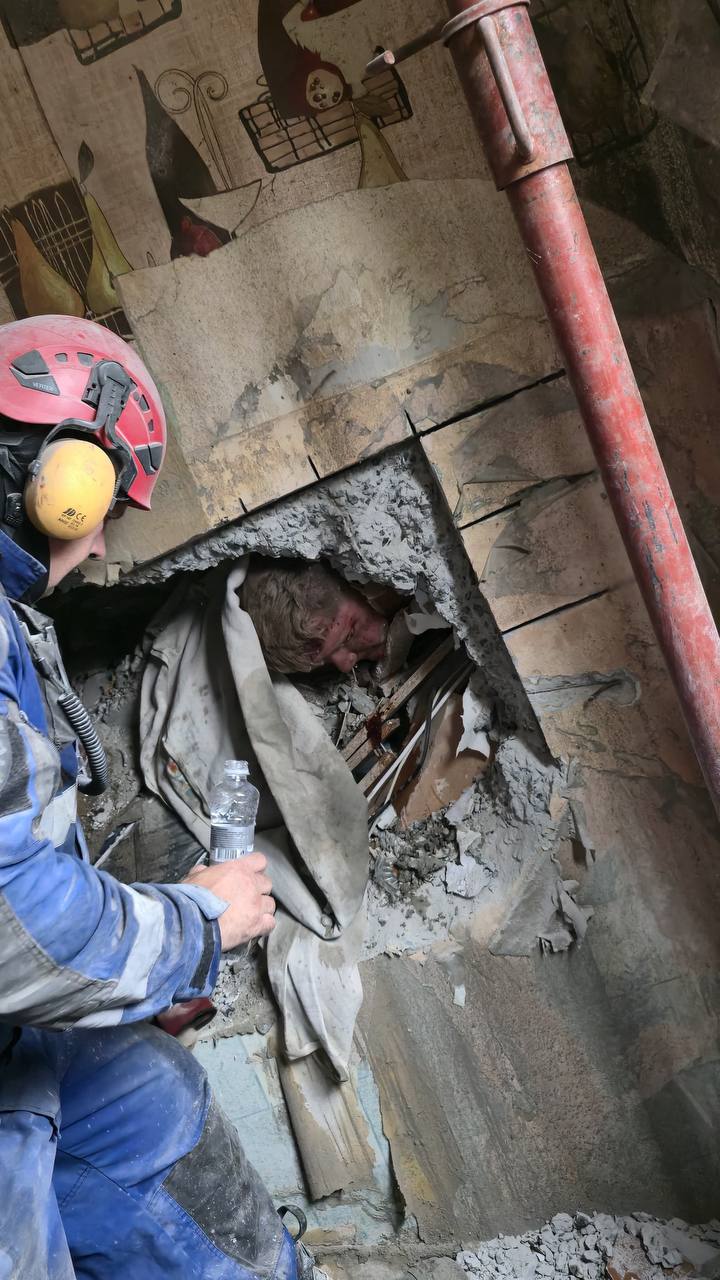
Meanwhile, the number of victims continues to rise. Among the victims are a two-year-old and a six-year-old. The number may rise as emergency workers dig through the debris.
Kyiv Mayor Vitalii Klitschko announced yesterday that 1 August was declared a day of mourning in the city. Flags were lowered on municipal buildings, and all entertainment events were canceled. Both state and private institutions were asked to lower their flags as well.
During the night of 31 July, Russian forces attacked Kyiv with drones and later with Iskander-K missiles. According to Ukraine’s Air Force, Moscow used a total of 309 attack drones and eight Iskander-K cruise missiles in the assault on Ukraine, three of which were intercepted.
The Iskander-K missiles were launched from Russia’s Kursk Oblast, practically right on the border, leaving very little time to respond or deploy appropriate countermeasures. Moreover, Iskander ground-based launchers are harder to detect than carriers of Kalibr or Kh-101 missiles, as the latter must first head out to sea, and their flight time is significantly longer, Defense Express reports.
Ukraine’s intelligence agency has reported that Russia is capable of producing up to 300 cruise missiles per month, including 20–30 Iskander-K missiles.

© Luis Cortes/Reuters

© Andres Kudacki for The New York Times

© Jamie Kelter Davis for The New York Times

© Kenny Holston/The New York Times

© Eric Lee/The New York Times

© Samuel Corum for The New York Times

© Eric Lee for The New York Times

© Haiyun Jiang for The New York Times

© Sandy Huffaker/Agence France-Presse — Getty Images

© Magnus Lejhall/EPA, via Shutterstock

© Tierney L. Cross/The New York Times

© Daniel Becerril/Reuters

© Sky Island Alliance

© Elizabeth Bick for The New York Times

© Tierney L. Cross/The New York Times

© Saher Alghorra for The New York Times

© By Ashley Wu

© Omar Havana/Associated Press

© Brian Snyder/Reuters

© Stark-Otto/Ullstein Bild, via Getty Images

Dozens of parliamentarians from various countries staged a coordinated walkout during a speech by Russian Federation Council Chairwoman Valentina Matvienko at the World Conference of Speakers of Parliaments in Switzerland on 30 July.
Why the mass walkout? According to Ukrainian Parliament Vice-Speaker Olena Kondratiuk, it sent a clear message about Russian aggression.
“This is a walkout against the aggressor,” Kondratiuk said, describing tears in her eyes as she watched international colleagues leave.
The half-empty hall, she argued, showed exactly how democratic parliaments view Russia.
Czech Parliament’s Chamber of Deputies Speaker Marketa Pekarova Adamova also made her reasoning explicit. She refused to be “a prop in the lies on which the criminal Kremlin regime is based.”
“She herself bears personal responsibility for the crime of aggression and all subsequent Russian atrocities after publicly approving the use of armed forces on Ukrainian territory,” Adamova wrote.
Better to spend time with colleagues “who support Ukraine in its fight for freedom and democracy,” she added.
But why was Matvienko allowed into Geneva at all? Ukraine’s Foreign Ministry had called her conference participation “disgraceful.” Spokesman Heorhii Tykhyi put it bluntly: her place should be “in the dock, not at international conferences.”
Here’s the problem: Matvienko appears on EU sanctions lists related to Russia’s invasion. So does much of the Russian delegation. Switzerland honors these sanctions—with one exception. The country permits sanctioned individuals to enter when visiting international organizations based there.
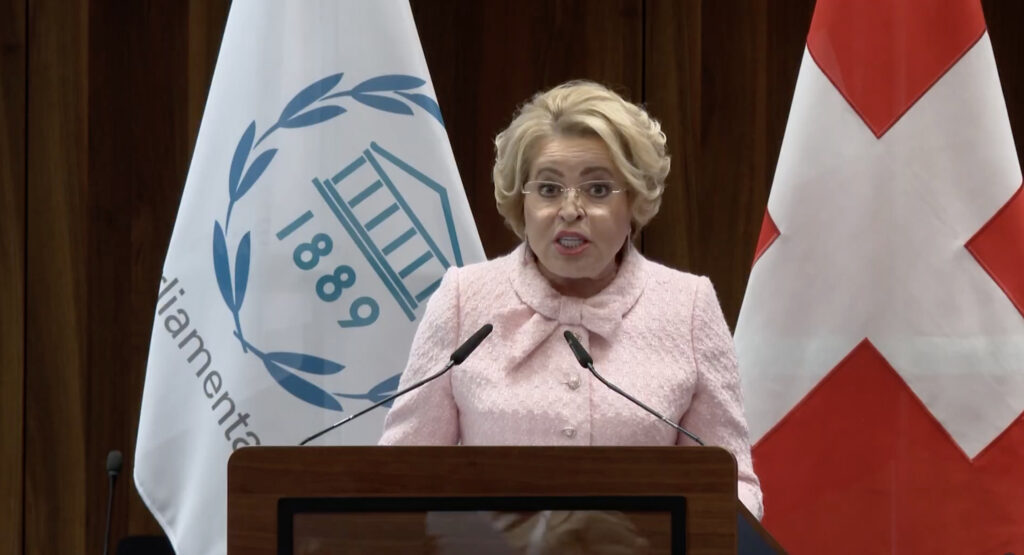
What had Matvienko been saying? Two days earlier, she invited international parliamentarians to visit occupied Ukrainian territories and see the “Alley of Angels.” This is a memorial in Donetsk that Russian forces erected allegedly commemorating children killed by Ukrainian forces in the conflict, which is considered a Russian propaganda narrative as there is no independent proof and convincing evidence.
Earlier, Ukraine’s Security Service charged Matvienko in absentia in 2024 under multiple articles. According to investigators, she signed parliamentary decisions authorizing Russian troop deployment in Ukraine. She also approved ratification agreements for annexing occupied Ukrainian territories. She faces additional charges including incitement to wage aggressive war, for which Ukraine plans to prosecute her at a Special Tribunal.

© Dan Kitwood/Getty Images
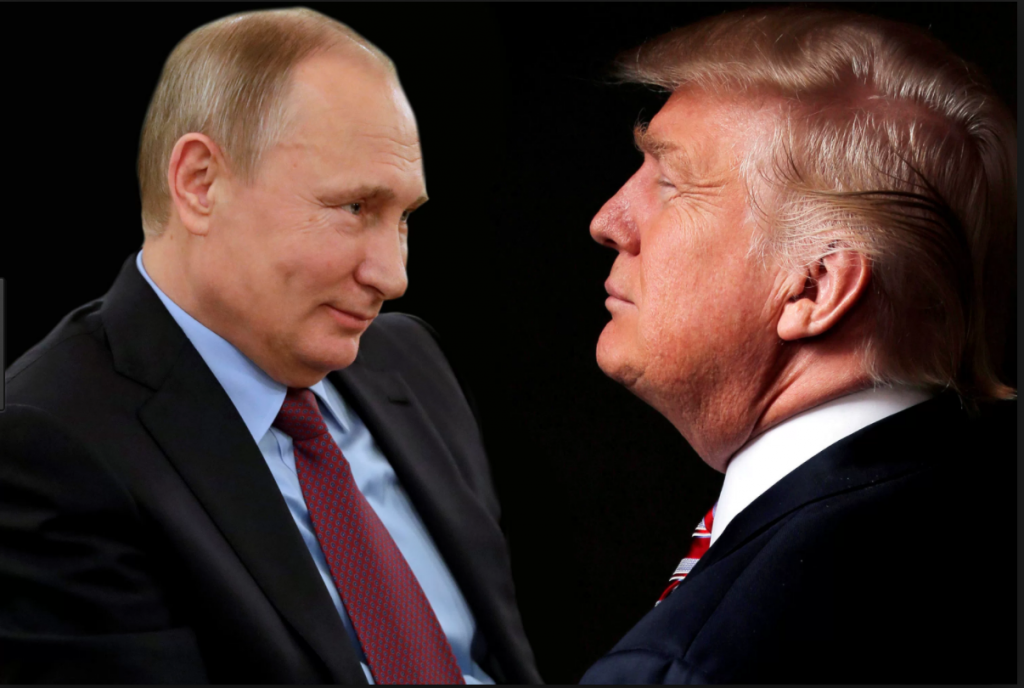
Ten days. That’s how long Donald Trump gave Vladimir Putin to end the war in Ukraine before facing new American punishment.
But will Congress wait that long?
Senator Richard Blumenthal thinks not. The Connecticut Democrat wants an immediate vote on sweeping Russia sanctions legislation, telling Suspilne News that Putin “does not deserve additional time.”
Blumenthal and his Republican co-author Lindsey Graham have been pushing the sanctions bill since April. Eighty-one senators support it. Yet it sits in limbo while Trump experiments with presidential ultimatums.
“Everything the president is doing is in the right direction, but I strongly advocate for sanctions to be 500%, not 100%,” Blumenthal said.
Blumenthal emphasized the importance of demonstrating unity between the executive branch and Congress on Ukraine policy.
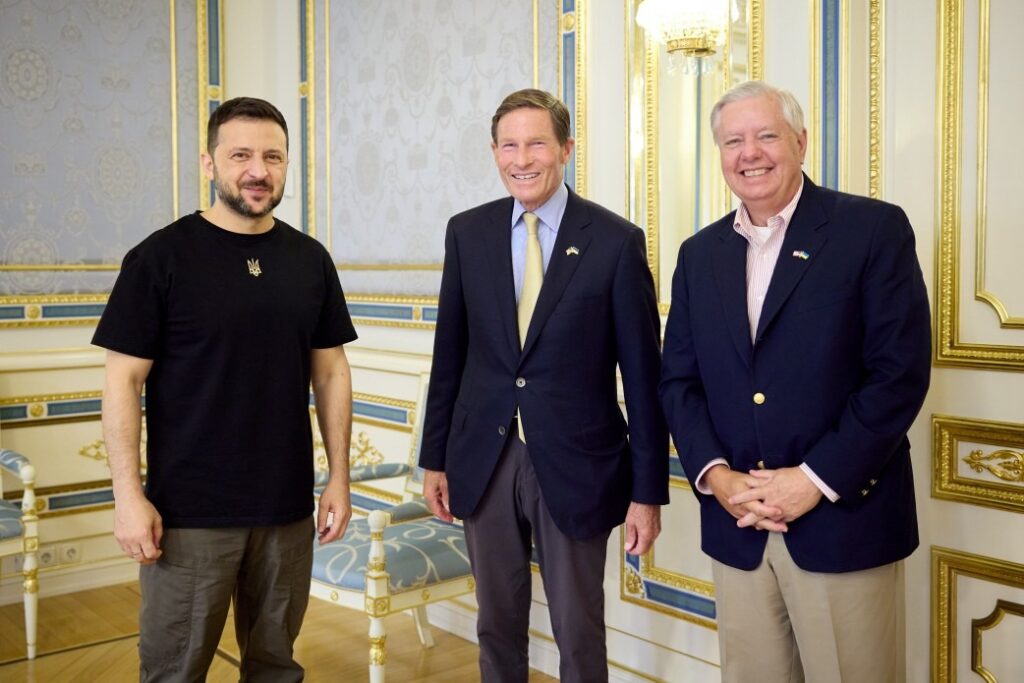
Republican Senator Roger Marshall offered a different perspective, telling Suspilne News that Trump should be given “maximum flexibility” during the 10-day period. However, Marshall acknowledged that “Putin is not responding to anything” and advocated for comprehensive sanctions including potential banking sector measures and secondary sanctions.
Graham takes a harder line. If Putin won’t negotiate, Trump should target China and India—Russia’s biggest oil customers.
“He can do this through an executive order or through legislative initiative in Congress,” Graham told Suspilne News.
Can they actually pass this thing? The numbers look good. Blumenthal counts 85 Senate supporters and believes they can reach 90 votes if needed.
Despite this backing and failed ceasefire negotiations in Istanbul, Trump had previously stated in May that Washington would not impose additional Russia sanctions.
Moscow’s response? Kremlin spokesman Dmitry Peskov acknowledged the deadline but said Russia’s “special military operation” continues and negotiations require momentum from both sides.
This stance reflects their determination to sustain the war despite international pressure and economic measures intended to weaken Russia.
Meanwhile, Ukraine keeps destroying Russian military assets faster than Moscow can replace them. The senators argue economic pressure should match that pace.
Graham puts it simply: “The president will increase pressure on Russia’s clients to get Putin to the negotiating table.”
Whether that pressure comes through congressional action or Trump’s executive measures may depend on how the next few days unfold. Putin’s silence on Trump’s deadline suggests he’s betting the president won’t follow through.

© Saher Alghorra for The New York Times

© Desiree Rios for The New York Times
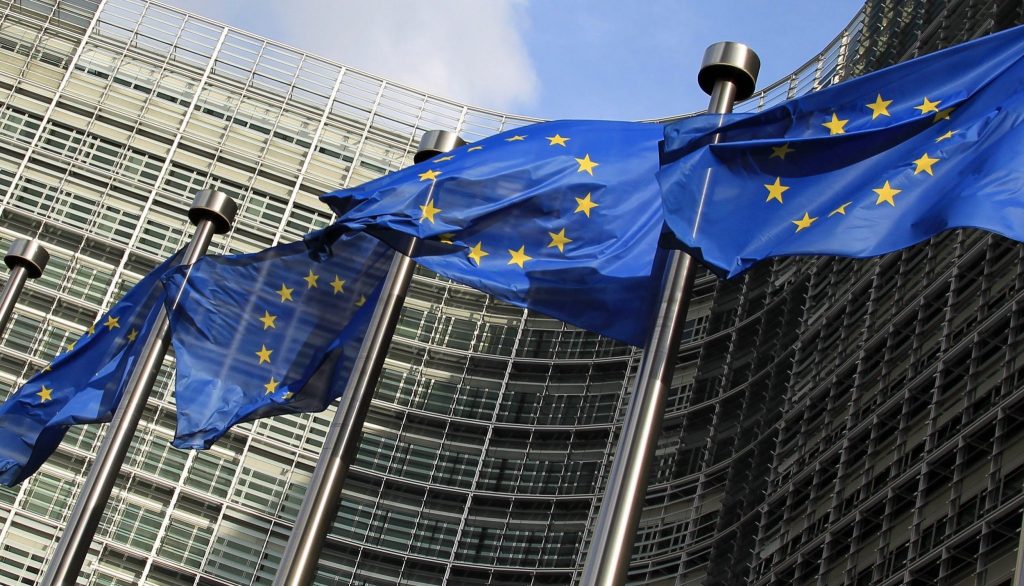
The Ukrainian government resists appointing the head of one of its anti-corruption agencies, delaying the start of its work. Meanwhile, the EU says this setback in the Economic Security Bureau (BEB) running endangers Kyiv’s credibility and $3 billion in support, European Pravda reports.
The European Commission calls on the Ukrainian government to immediately appoint the head of the agency, which has already been chosen in accordance with current legislation and transparent procedures.
Oleksandr Tsyvinsky is a National Anti-Corruption Bureau (NABU) detective who won the BEB director position in June 2025. The competition involved international experts. The BEB reform is one condition for Ukraine to receive $3 billion in international aid.
Tsyvinsky leads one of NABU’s elite detective units and became known for his participation in the “Clean City” investigation. His appointment was to symbolize the restoration of trust in anti-corruption bodies.
However, on 7 July, the Ukrainian government refused to approve him, citing “security concerns” as assessed by the Security Service. In response, Tsyvinsky stated that the government’s decision “does not comply with the law.”
The government’s refusal to approve the competition winner marked another escalation in tense relations between Ukrainian authorities and NABU, which sharply intensified this summer.
On 22 July, President Volodymyr Zelenskyy signed the controversial bill, which curtails the NABU’s independence, as well as the liberty of the Specialized Anti-Corruption Prosecutor’s Office (SAPO), by requiring their key decisions to be coordinated with the Prosecutor General’s Office.
19 Ukrainian protest signs that are pure art (and also completely unhinged)
The law led to mass civil society protests and criticism from international partners as it contradicts Ukraine’s commitments to the EU and the US on anti-corruption reforms.
The EU has already warned diplomatically that undermining NABU’s independence will have serious consequences for further EU integration and aid volumes. The situation around BEB only deepens the trust crisis.
The business community, over 124 associations and 27,000 companies, published an open letter urging the authorities not to delay appointing the competition winner.
“Kyiv must promptly appoint the BEB director according to the law on BEB reform and current procedures,” says a European Commission spokesperson.
Appointing Tsyvinsky is a key condition for advancing the BEB reform and preserving the institution’s independence. The EU enlargement report for 2024 emphasized that the competition must be transparent, based on personal merits and integrity.
The Selection Commission has sent Tsyvinsky’s documents to the Cabinet for the second time, and Europeans are closely watching whether the government will fulfill its commitments.

© Mario Anzuoni/Reuters

© Mark Abramson for The New York Times


© Erica Dischino for The New York Times
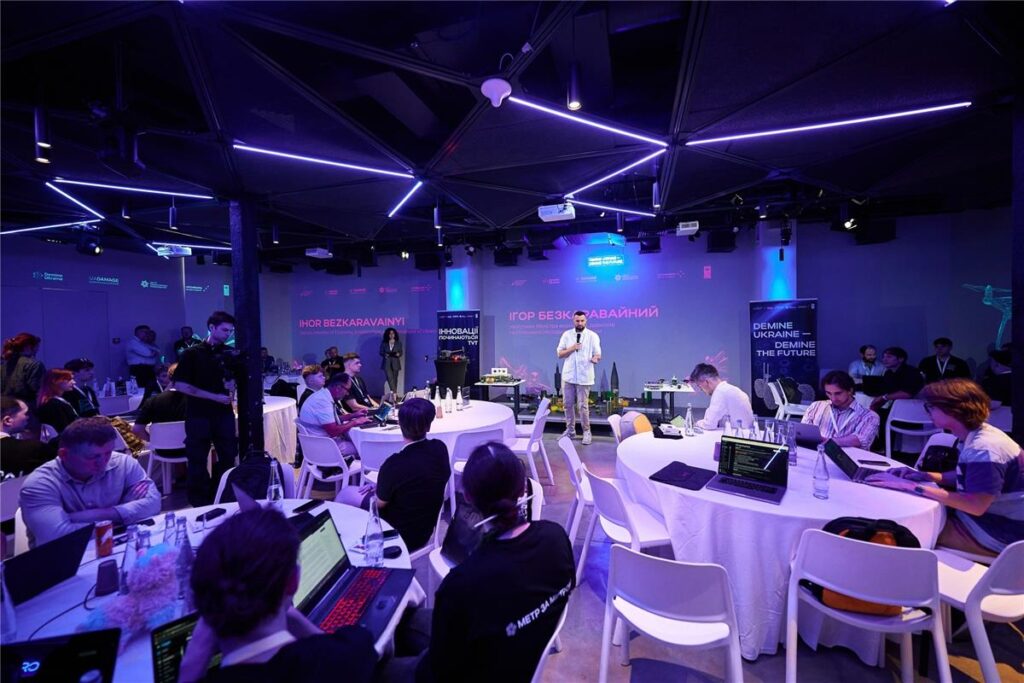
Ukrainian developers create algorithms to detect explosives from drone imagery. In Kyiv, 13 teams of engineers have built artificial intelligence capable of spotting landmines in drone imagery, a potential breakthrough for demining efforts, the Ministry of Economy, Environment, and Agriculture reports.
As of 2025, Ukraine is the most heavily mine-contaminated country in the world. Due to Russia’s war, nearly one-third of the country’s territory, an estimated 170,000 to 180,000 square kilometers, is considered mined. That’s roughly the size of half of Germany.
Over two days in Kyiv, the teams worked on training neural networks to automatically detect explosive objects. The competition, part of the second stage of the AI Data Jam, tasked participants with analyzing 8,000 training images and 23,000 test images depicting mine threats.
Mentorship was provided by experts from UADamage, The HALO Trust, and Dropla Tech.
“What began as an experiment has grown into a full-fledged project with international backing and tangible results,” says Deputy Economy Minister Ihor Bezkaravainyi.
There’s a huge motivation behind such AI lessons: to create a unique product that can help safely clear Ukraine of landmine pollution, leveraging cutting-edge technology without putting lives at risk.
The winning team, MineWatch AI, developed the most accurate detection model. They received $2,000 in support from UNDP Ukraine and the Luxembourg government and the opportunity to further develop the system in partnership with professional demining experts.
All models and datasets from the challenge will contribute to refining AI algorithms. After successful testing, the technology is set to be integrated into humanitarian demining operations, speeding up and safeguarding the clearance of Ukraine’s contaminated lands.

© Pool photo by Jordan Pettitt
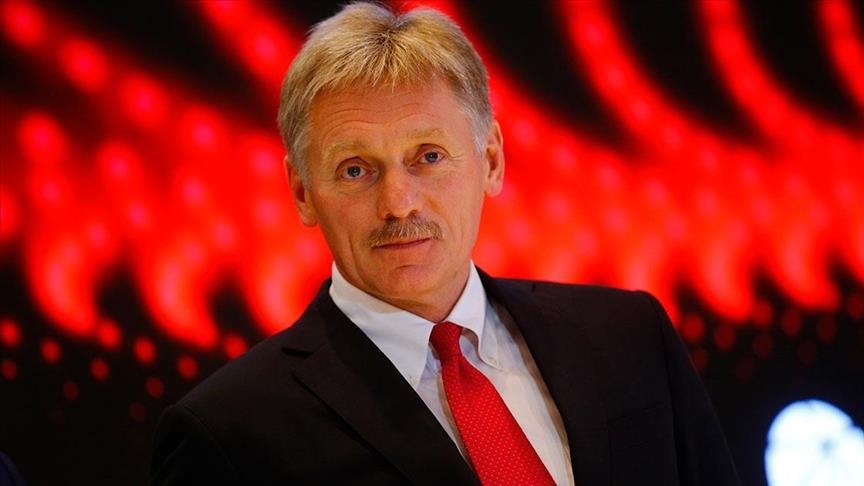
Despite US President Donald Trump’s new ultimatum for Russia, giving it only ten days to end the war in Ukraine, the Kremlin confirmed that Russia has no intention to stop its aggression, UNIAN reports.
Trump has given Russia a shortened timeframe of 10–12 days to agree to a ceasefire in Ukraine or face tougher sanctions as his disappointment with Russian leader Vladimir Putin grows. He said he wanted to be generous but did not see any progress being made toward peace. He made clear he doesn’t believe Putin will meet the demands within the original 50-day window.
“We took Trump’s statement about a shortened timeline for resolving the situation in Ukraine and his disinterest in contacts into account,” says Dmitry Peskov, Russian President Vladimir Putin’s spokesperson, adding that Russia acts “in the interest of its own security.”
Peskov has also ruled out any upcoming meeting between Putin and Trump, while lamenting the stagnation in US–Russia relations.
“Russia would like to see more momentum, but that requires signals from both sides,” he says.
Peskov’s statement is not entirely truthful in light of Trump’s actions in 2025. The US president made a number of concessions to Russia on the path to peace.
On 14 July, Trump threatened 100% tariffs on Russia and secondary sanctions on countries buying its oil unless Putin halts his attacks on Ukraine within 50 days. This could impact China, India, and Brazil, Russia’s main economic allies.
As Trump threatens sanctions on buyers of Russian oil, India prepares to switch suppliers to avoid fallout
By 28 July, the US president had slashed its first deadline.
“I’m not so interested in talking [to Putin] any more. Every time I think it’s going to end, he kills people,” Trump claimed.
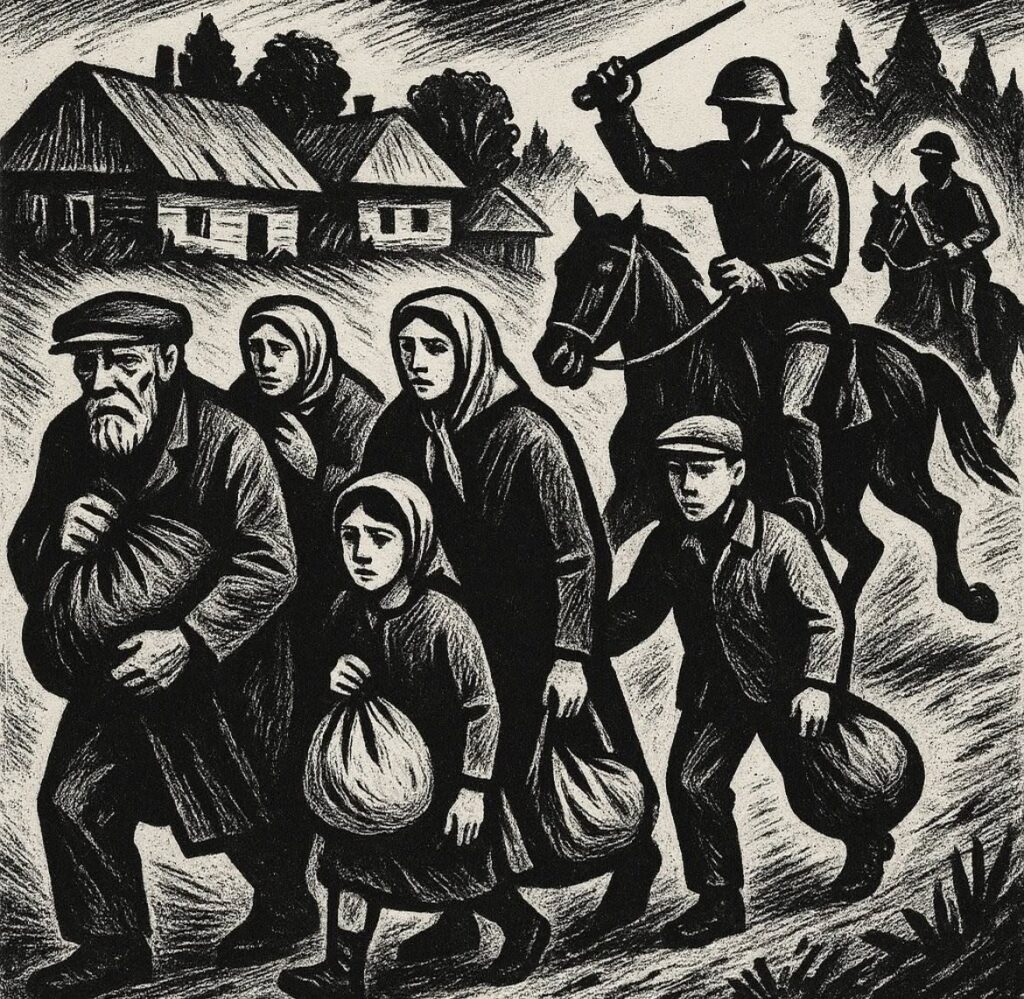
Ukrainian President Volodymyr Zelenskyy has signed a law recognizing the forced resettlement of around 700,000 Ukrainians from the territory of communist Poland in 1944–1951 as an act of deportation.
The autochthonous population of Lemkivshchyna, Kholmshchyna, Nadsiannia, Pidliashshia, and other Ukrainian lands is the victim of the resettlement of the people, who were driven from their native homes by totalitarian regimes.
LTR reports that the draft law was first submitted in 2019 but has only now come into force after years of revisions and parliamentary hearings.
“It’s good that step by step, we’re achieving legal and historical clarity in these matters, and most importantly, without scandals or politicization of history,” says Anton Drobovych, former head of the Institute of National Memory.
The new law guarantees compensation for material and moral damages to victims and their descendants. One-time financial aid is envisioned, along with benefits similar to those granted to war veterans, including free public transportation and discounts on intercity travel.
The deportation of Ukrainians was carried out under agreements between the USSR and the Polish communist regime. Operation Vistula in 1947 was the largest-scale phase, when over 140,000 Ukrainians were forcibly relocated to northern and western Poland.
In 2002 and 2004, respectively, Poland’s Constitutional Tribunal and the European Court of Human Rights recognized these resettlements as unlawful.
Since 2018, Ukraine has annually observed the Day of Remembrance for Victims of Ukrainian Deportations on the second Sunday of September. The law enshrines this date as a symbol of restored dignity and historical truth.
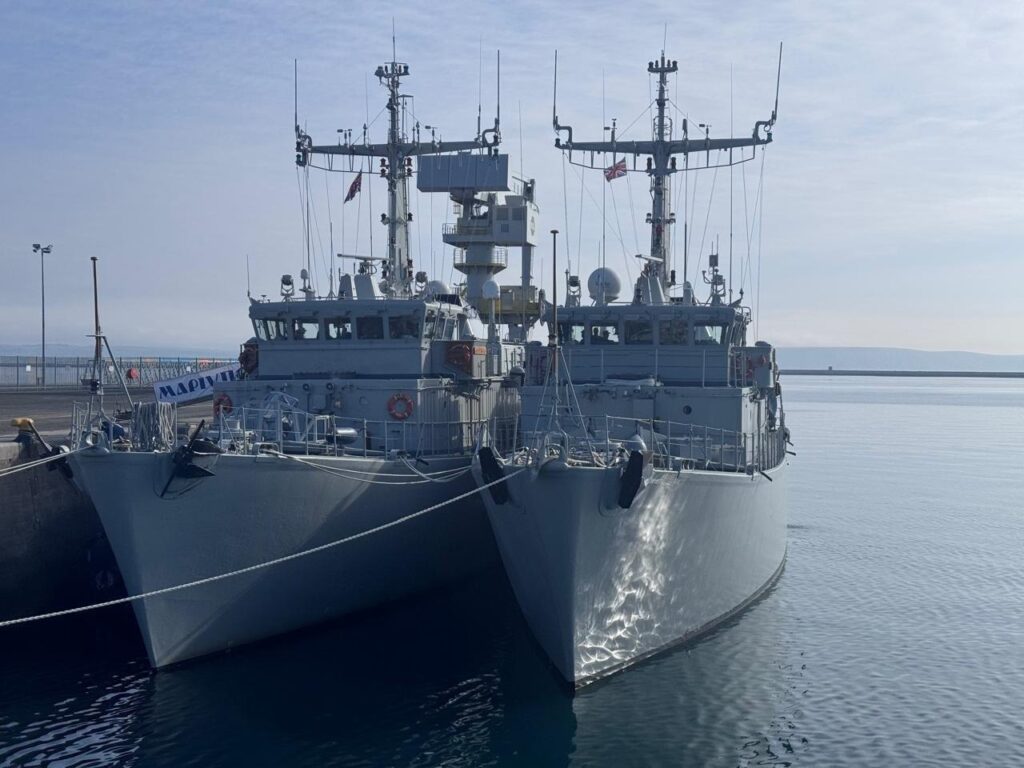
At the international Sea Breeze 2025 exercises in the UK, Ukrainian marines surprised NATO instructors with their skill and combat experience. Some units had arrived directly from the front lines, and their expertise made an impression even on proficient partners, TSN reports.
Russia traditionally views the Sea Breeze exercises as a threat to its security, labeling them “provocative muscle-flexing” by NATO near its borders. The official position is that Sea Breeze has a clearly anti-Russian nature, leading to the “destabilization of the Black Sea region” and increasing the risk of armed confrontation. Moscow has repeatedly demanded the cancellation of these drills.
“We managed to surprise our partners and neighbors. The experience of modern warfare that we unfortunately have is unique, and for now, it’s the most relevant,” says Navy spokesman Captain 2nd Rank Dmytro Pletenchuk.
As part of the land component of Sea Breeze, Ukrainian troops not only trained with new technologies and mine countermeasure equipment but also shared their battlefield experience.
This year, four Ukrainian minehunters took part in the drills, as mine warfare remained the central focus.
“We had something to show our partners,” Pletenchuk emphasizes, stressing the importance of joint efforts for the future demining of the Black Sea.
Ukraine is actively working on interoperability with NATO member states
, especially those with direct access to the Black Sea — Romania, Bulgaria, and Türkiye.
“We hope our partners will join efforts to demine the Black Sea,” adds the Ukrainian Navy spokesperson.
On 30 June, the second phase of the multinational Sea Breeze exercises officially began in Portland, UK, with the participation of Ukraine’s Navy.
Ukraine has participated in Sea Breeze since 1997, now for 28 years. With the onset of the all-out war in 2022, the format of Sea Breeze changed. While the drills have continued, parts of them have been relocated outside Ukraine to the UK and Romania.
You could close this page. Or you could join our community and help us produce more materials like this.
We keep our reporting open and accessible to everyone because we believe in the power of free information. This is why our small, cost-effective team depends on the support of readers like you to bring deliver timely news, quality analysis, and on-the-ground reports about Russia's war against Ukraine and Ukraine's struggle to build a democratic society.
Become a patron or see other ways to support.

© Mukhtar Khan/Associated Press

Washington speaks the language of deadlines, while Moscow responds with threats. Former Russian President Dmitry Medvedev is suggesting that US President Donald Trump’s pressure could provoke a broader, direct confrontation with the US itself.
Medvedev is often called the Kremlin’s “mouthpiece” for his apocalyptic social media statements reflecting Moscow’s official position. He has frequently issued nuclear threats aimed at the West.
His furious speech came after Trump issued a new ultimatum to the Kremlin — just 10 days to reach a peace agreement on Ukraine, not 50, as he announced before. Also, the US president said he was tired of receiving no results from any peace talks with Russia, which bring only more deaths in Ukraine. Thus, he does not want to continue negotiations with Moscow and will pay attention only to real actions from Russia.
Medvedev, as usual, reacted with a series of angry threats on social network X.
“Trump’s playing the ultimatum game with Russia: 50 days or 10… He should remember 2 things:
1. Russia isn’t Israel or even Iran.
2. Each new ultimatum is a threat and a step towards war. Not between Russia and Ukraine, but with his own country,” he wrote.
However, it’s unclear whether Russia is now capable of really waging the war against the US. The Russian economy is declining, and during three and a half years, Moscow managed to occupy only 20% of Ukrainian territory.
Medvedev also scornfully warned Trump, “Don’t go down the Sleepy Joe road,” clearly mocking Joe Biden. The US cut off diplomatic ties with Russia during Biden’s presidency. Trump has abandoned the isolation policy against Moscow to end the war in Ukraine and Israel. However, that did not bring any strong results, as the hostilities have not ceased, and Russian President Vladimir Putin did not convince the Tehran leaders to stop attacking Jerusalem.

© Sophie Park for The New York Times

© Leigh Vogel for The New York Times

© Yui Mok/PA Images — Getty Images
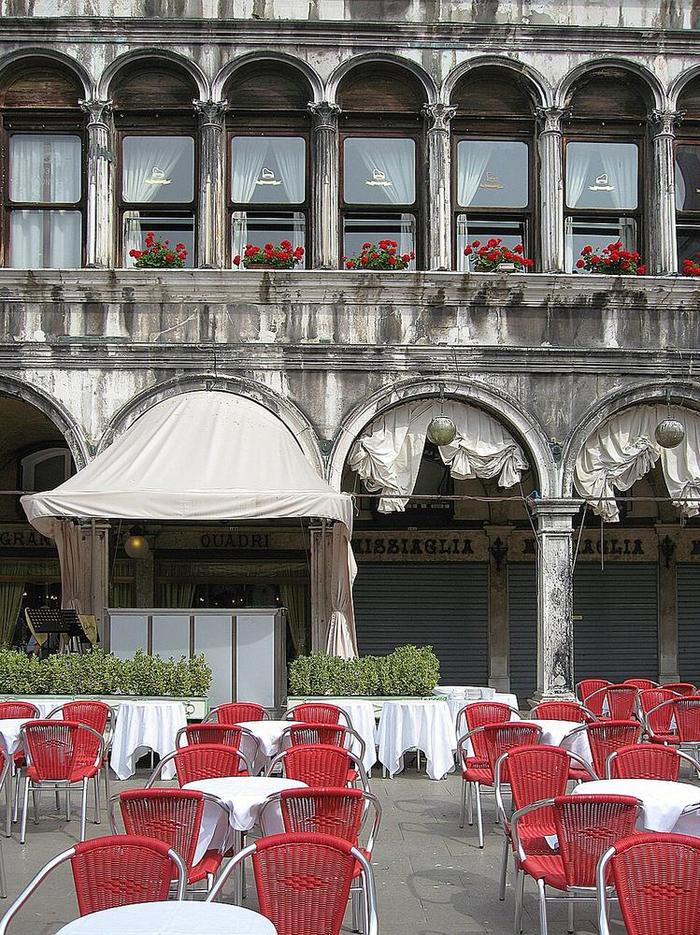
The Russians are continuing to vacation while war rages on. As Russian missiles rain down on Ukrainian cities, Russian citizens are sunbathing undisturbed on the beaches of France, Italy, and Spain, The Telegraph reports.
As of late July 2025, approximately 74% of Russian citizens support the war, while 24% say they want to launch a nuclear missile strike on Ukraine.
Despite Russia’s all-out war against Ukraine and ongoing sanctions, Europe continues to welcome Russian tourists. Overnight stays by Russians in French and Italian hotels rose by 19% over the past year.
These countries, both NATO and EU members, are still opening their doors to citizens of the aggressor state.
“In the fourth year of Russia’s war of aggression against Ukraine, it is extremely surprising to see statistics showing an increase in the number of visas issued to Russian citizens,” emphasized Ukraine’s Ambassador to the EU, Vsevolod Chentsov.
France, a member of the “Coalition of the Willing” and an active supporter of Ukraine, is in no hurry to restrict tourist flows from Russia. Along with Italy, it advocates keeping borders open, at least for “wealthy Russians.”
Russia does not intend to end its war against Ukraine. On the contrary, Russian ruler Vladimir Putin has told US President Donald Trump that military actions will escalate during the summer offensive. In the first half of 2025, Russia killed or injured 6,754 civilians in Ukraine, the highest number for a six-month period since 2022, the UN reports. In June 2025 alone, the UN documented 232 civilian deaths and 1,343 injuries, marking the highest monthly casualty toll in three years.
“There are many Russians who support the war, and particularly the Russians who have money. What we absolutely don’t want to do is allow these Russians to enjoy the privileges and resources of Europe, while at the same time they’re supporting Putin’s war efforts,” said financier and anti-Putin activist Bill Browder.
Experts believe that access for Russians is not only morally questionable but also a security risk. Browder calls for a ban on entry for Russian citizens unless they can prove they oppose Putin’s regime.
He stressed that denying visas can pressure the Putin regime and reduce the security threat posed by Russia’s hybrid war against the West.
Despite a ban on direct flights, dozens of travel routes between Russia and Europe still operate via Türkiye, Georgia, and Serbia. Meanwhile, Ukraine pays in blood for every day of freedom, as Europe hosts those who support the aggressor.
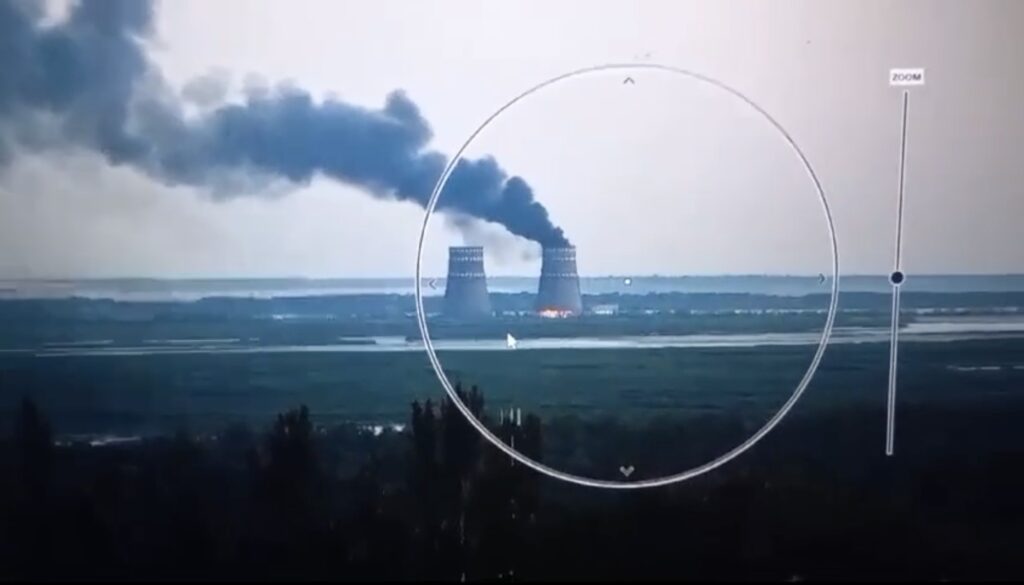
Russian ruler Vladimir Putin is blackmailing all of Europe by keeping the Zaporizhzhia Nuclear Power Plant under his control, Forbes reports. This warning comes from British expert Simon Bennett of the University of Leicester, author of the Atomic Blackmail? The Weaponization of Nuclear Facilities During the Russia-Ukraine War book.
When Russia launched its full-scale war against Ukraine, one of the first things it did was the occupation of the Chornobyl Nuclear Power Plant. It was liberated in 2022. However, Moscow troops targeted it with drone, damaging the protection over the plant. The Kremlin also captured the Zaporizhzhia Nuclear Power Plant, the largest in Europe. The station has enough capacity to cover the annual electricity needs of countries like Ireland, Slovakia, or Finland.
According to Bennett, Russian occupiers could rig the Zaporizhzhia plant with explosives and, if Putin is defeated, remotely detonate its six reactors. This would create radioactive fallout clouds that would quickly spread across Europe.
“As demonstrated by the 1986 Chernobyl meltdown and radionuclide release … plumes of radioactive debris can travel many hundreds of miles,” he told the journalists.
He recalls that radiation then reached as far as England, contaminating agricultural lands.
Moreover, Kremlin control over the plant poses a threat to Russia itself.
“Should any of Ukraine’s nuclear power plants be hit, even the plants in the far west of the country, there is a real possibility that, if there were a persistent westerly wind, the plume would reach Russia’s heartlands,” Bennett warns.
The expert also cautions that Russia’s military operations around nuclear plants may foreshadow tactics in a future war with NATO. He notes that the Kremlin might deploy “sleeper agents” to undermine Western infrastucture. These are spies with fake documents already embedded in the critical infrastructure of Western countries.
“I think it likely that Russia has in place sleepers across any state it considers hostile…which, of course, would include NATO member states,” Bennett concludes.
Earlier, Euromaidan Press wrote that Russian ruler Vladimir Putin shows no intention of abandoning his objectives in Ukraine or ending the war. Even under the threat of new sanctions, he appears ready to go to extremes to achieve victory.
“He will risk everything in Ukraine”: Putin may be preparing for even harsher war in Ukraine after Trump’s ultimatum
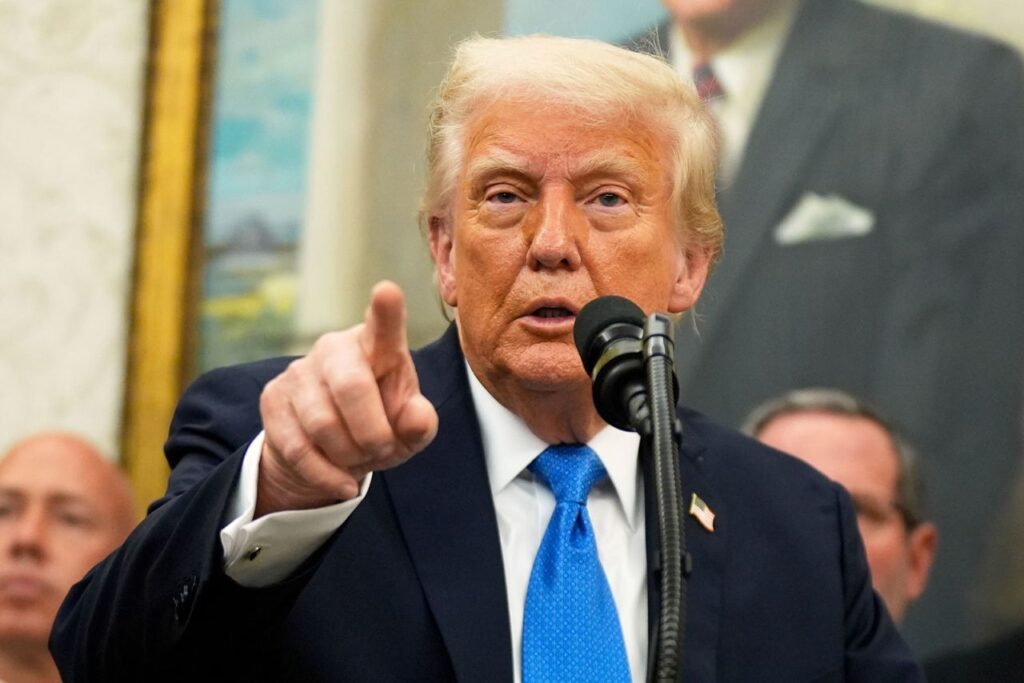
US President Donald Trump shortens Russian President Vladimir Putin’s deadline. Trump has given Russia a shortened timeframe of 10–12 days to agree to a ceasefire in Ukraine or face tougher sanctions, as his frustration with the Russian leader grows, according to the Financial Times.
Russia does not intend to end its war against Ukraine. On the contrary, Putin has told US President Donald Trump that military actions will escalate during the summer offensive.
Speaking Monday at his Turnberry golf resort in Scotland, Trump said he would move up the 50-day deadline he had previously set for Putin to avoid so-called “secondary sanctions.”
“I’m going to reduce that 50 days that I gave him to a lesser number. There’s no reason in waiting,” he added in a joint appearance with UK Prime Minister Sir Keir Starmer.
He said he want to be generous, but just does not see any progress being made. He made clear he doesn’t believe Putin will meet the demands within the original 50-day window.
“I’m not so interested in talking [to Putin] any more. Every time I think it’s going to end, he kills people,” Trump added.
In the first half of 2025, Russia killed or injured 6,754 civilians in Ukraine, the highest number for a six-month period since 2022.
Although Trump spent the first months of his presidency blaming Ukrainian President Volodymyr Zelenskyy for the war, his tone has recently shifted, especially after the US-Ukraine presidential meeting at the NATO summit just over a month ago.
On Monday, Head of the Ukrainian President’s Office Andrii Yermak welcomed Trump’s decision to shorten the ceasefire deadline, thanking him for “standing firm and delivering a clear message of peace through strength”.

© Saher Alghorra for The New York Times

© Peter Parks/Agence France-Presse — Getty Images

© Bridget Bennett/Associated Press